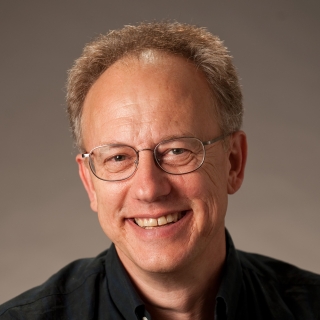
Joel Rothman
Research
Regulation of development and differentiation; regulation of programmed cell death and cell division; mechanisms of tumorigenesis
When a fertilized egg is transformed into a complex multicellular animal, how do cells learn when to divide, differentiate or die at the proper time and location? We are investigating the mechanisms that regulate these processes during embryonic development in the nematodeCaenorhabditis elegans, the only animal for which the lineage of every cell has been elucidated and the first for which the entire genomic sequence is known. By a combination of molecular genetic and cell biological approaches, RNA-mediated interference (RNAi), which allows one to "knock out" a gene in one day, and affinity purification coupled with mass spectrometric protein identification, we are identifying and characterizing the factors that regulate a number of developmental processes.
We are investigating how cells in the early embryo are instructed to adopt the appropriate identities, and how differentiation of the three germ layers (endoderm, mesoderm, and ectoderm) is molecularly controlled. We have identified a set of regulatory molecules, including a network of transcription factors, that activate the entire pathway for endoderm and mesoderm development. These factors are regulated by the "Wnt" signaling pathway and a MAP kinase phosphorylation cascade and we are examining how these signal transduction processes modulate the expression and function of these regulators.
To understand the processes underlying tumorigenesis and cancer in humans, we are investigating the mechanisms that regulate programmed cell death (PCD) and cell division. PCD is a genetically controlled process that eliminates extraneous or potentially harmful cells during development of most animals. Its improper regulation can lead to numerous pathologies including cancer and neurodegenerative diseases. We are characterizing molecules that control PCD and cell division, including some that are homologues of human tumor-suppressor proteins and oncogene products. Since molecules that regulate PCD are conserved between humans and nematodes, our studies should reveal components that act in these processes in all animals.
